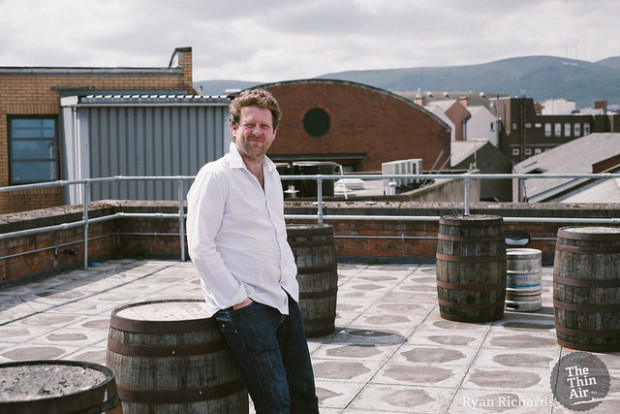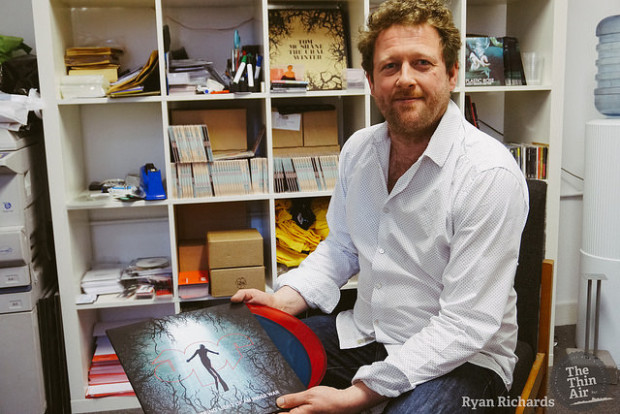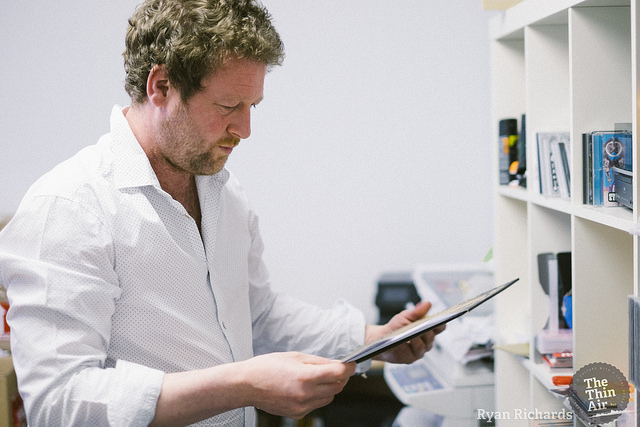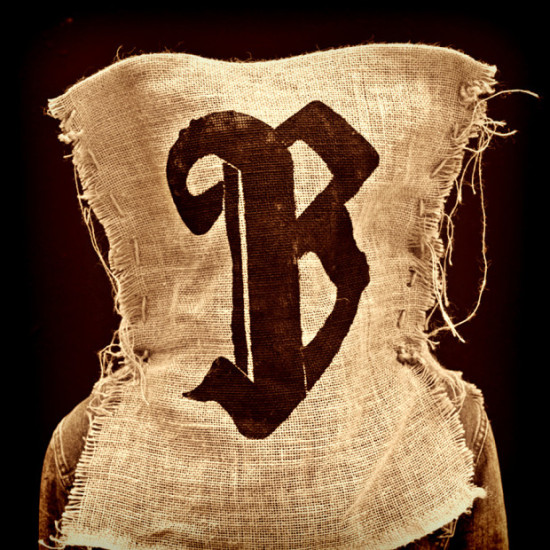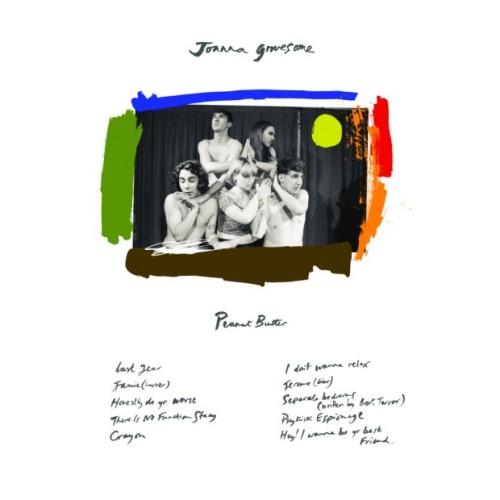In the latest installment of Front of House, Cathal McBride chats to Davy Matchett of Belfast’s Third Bar Artist Development. Co-ran with Snow Patrol’s Gary Lightbody, Third Bar have mentored, managed and planned single and album campaigns for the likes of Desert Hearts, Robyn G Shiels, Ed Zealous, Wonder Villains, A Plastic Rose and many more. Photos by Ryan Richards.
Hi Davy. Can you tell us a little bit about yourself and Third Bar?
Certainly. My name is Davy Matchett and I have been following Manchester United since 1985, Ards Football Club since 1986 and going to gigs since 1987. My first gig was a-ha in the Kings hall on the 21st January 1987. That night I got the bug and wanted to experience live music more. When I was too young to go to venues I went to gigs in church halls and when I was almost old enough I started going to gigs in Belfast venues such as The Rotterdam, The Duke of York and the Limelight. I have not stopped since.
Third Bar began in September 2010 with the ambition of supporting artists from Northern Ireland and helping them achieve their ambitions. I named the company Third Bar as an appreciative nod to the song ‘Set The Fire to the Third Bar’, written by Gary Lightbody for the Snow Patrol album Eyes Open. Without Gary’s support there would be no Third Bar.
How did you first become involved in the project?
Gary Lightbody asked me to get involved and I was delighted to agree to do so.
How do you choose which artists to work with?
If an artist has the talent and the ambition to be the best at what they do and we like their music then that is a good starting point.
What sort of mentoring do you offer to artists?
Whatever is needed. For some artists they need help to find other musicians to help start their first band. For others they need advice on where to get physical copies of CD/vinyl duplicated, how many to get made, how to sell them, how to get gigs, how to get their songs played on the radio.
What goes into planning a single or album campaign?
I’m going to assume this is a self release or one that is being licensed via a cottage industry indie label. This process of an album campaign can take years but lets assume:
- The songs are written, recorded, mixed & mastered
- Decisions made on running order
- ISRC codes & barcodes have been sorted where necessary
- The track names, codes, writers and contributing musicians have all been registered correctly with PRS & PPL
- The artist has worked on the artwork or commissioned someone else to come up with concepts for the artwork
- The artist has also decided on which format they wish to release the tracks on – vinyl/CD/download/streaming.
Now that the artist has spent a wealth of resources on all of those to get to this point they will now want to give the record its best chance to be heard by as many people as possible.
The band need to work out the following:
- What is your audience right now
- What can I do to grow that audience – get more fans
- What does it mean to be a fan
- What type of relationship do I want to have with my fans
- My band are really good live aren’t we?
The plan for the release of your record should be centred around making as many potential fans aware of your music as possible and the usual methods of making people aware of your new record are
- having song(s) played on the radio
- people writing about your music online or in print media
- word of mouth fan to fan interaction
- online organic sharing of tracks via playlists
- making a video that people enjoy and want to share with their friends
- pick an online social media platform that works for you, use it regularly
- make sure your music has some presence on the other social media platforms that your fans may use
Now we can get into the fun bit of the actual campaign. We like to use white boards with lines for week 1, week 2 etc. and key activity listed for each week of anything from a 12 week lead into an album launch date to a 48 week 3 singles and album lead in plan.
There are no rules really for lining up your activity. It is however best to remember the fact you want to maximise the number of people who will become fans so things to consider
- Do not release a video if it is shit. First impressions and all that. Even if it is good do not release it just because it is finished. Release it at a time it ties in with other related activity.
- If you think you are likely to only get one or two spot plays on radio try to pitch for them when your record is available to hear/buy or you have some shows in the very near future. No point using that radio token 12 weeks ahead of release. You will be forgotten if the potential fan can not play the track again there and then.
- Make sure you have all the information you think a producer/presenter/blogger/promoter might need on a one page document and sent it to them. Things to include in this document are up and coming live dates and Links to music download, to music stream, to artwork, to press photo, to a brief bio, to previous reviews. Make their job as easy as you can.
- you can not make people write about your music or play it on radio or add it to playlists. They might not like your stuff What you can do is try and get the track heard by them so they can make a decision to engage or not.
- Use social media to interact with musicians who you like who might be playing live in a town near you soon, try and get on good support bills where 99% of the crowd will not have heard of you but might like what they do hear enough to become a fan.
- So much of this part is about the timing of the activity.
Can you describe your typical working day?
It depends on what I am working on. If I am working with an advertising agency trying to secure a track for a client to use on a TV advert then I am sat by my phone with my diary clear until the processes are complete. Those decisions move quickly and my best chance at being successful in those negotiations is to be available and to provide solutions what a client needs. To make their job easier.
What do you feel have been Third Bar’s biggest successes so far?
Being able to recommend a number of good lawyers to musicians who are starting to get interest in their music. Always a pleasure to make sure they are being looked after properly in the early stages.
Also a success I put value on is that I am in a position to get your music played by people in various areas of the music industry in various places in the world who can then decide if they want to engage with growing your audience.
Witnessing Gianfranco Zola giving the members of Wonder Villains a training session ahead of him starring in their video for the track ‘Zola’ and all that went into making that day happen has to rank up there with our biggest successes.
You run Third Bar with Gary Lightbody, do you both have an equal input into the day to day running of things or does his day job often get in the way?
Gary is very involved in Third Bar, without him there would be no business to manage. Gary’s involvement in the development of a number of local artists and his support for music businesses in Northern Ireland over the years has been unflinching and unrivalled and Third Bar continue to be a massive part of that.
Gary is very busy with his day job of being a songwriter. He gets involved in the day to day where appropriate but leaves the running of the business to me.
Are there any artists you’d particularly like to work with that you haven’t had the chance to yet?
Yes! The one who is writing the amazing music in their bedroom or practice space and does not realise I am dying to hear it!
What does the immediate future hold for Third Bar?
We are working away on the debut album by David C Clements at the minute, finishing mixes and assembling the team.
We are at a similar point with a new album by Ollie Cole. It is another smasher.
I’m also keen to release a few online singles in the near future and I’m going to be taking on an intern via support from the BPI. News on the application and recruitment process for that will be available shortly.

